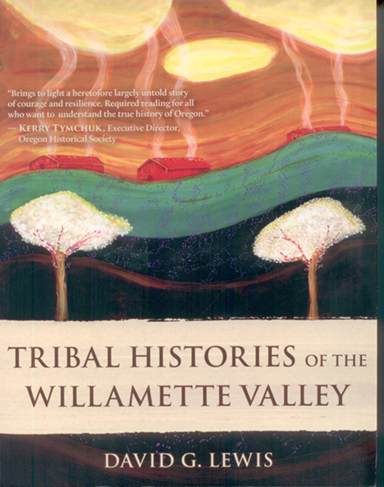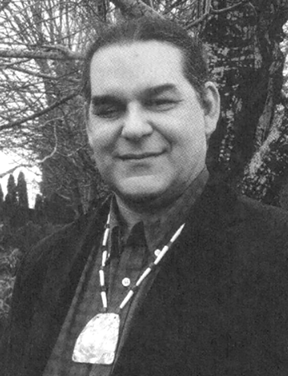New book on Willamette Valley tribes


Anyone interested in learning about the first people of the Tualatin Valley hasn’t had many sources. That changed last fall with the publication of David Lewis’ first book, “Tribal Histories of the Willamette Valley,” published by Ooligan Press. Any history of our area needs to include these first people, the Atfálati or Tualatin Kalapuya—how they lived and how the American colonizers dealt with them.
“The Kalapuyans based their annual lifestyles on the plant cycles,” he writes. They “imparted a calendar to anthropologist Albert Gatschet in 1877 at the Grand Ronde Reservation, which is based on the cycles of the camas and wapato plants.” Families traveled around the valley to gather nuts, berries, and other seasonal food, and wintered near wetland areas such as Wapato Lake. Several years ago, Lewis kindly shared some of his research with us in articles for Cedar Mill News, “Foods and fires of the Tualatin” and “Origin of the Tualatin Kalapuyans.”
The book is dedicated “to the tribal people of Western Oregon, who deserve to be told the truth about their history.” In the first chapter, “Decline of the Tribes of Western Oregon,” Lewis notes that “By the 1840s, all tribes in the region had declined in population. Where once there had been more than sixteen thousand Kalapuyans, by 1846 there were only about one thousand remaining. Malaria epidemics—brought by fur trappers to the Northwest Coast in the 1830s—lasted over the next decade and caused massive sickness to people who had never been exposed…The tribes faced extreme population declines of at least 75 percent of their people in the 1830s and 1840s, to a high of 97 percent for the Kalapuyans.”

Settlers, justified by the concept of Manifest Destiny, laid claim to the land whether it was occupied or not, and began rounding up the remaining tribes and eventually confined them to the Grand Ronde reservation. This history created families with no generational wealth. In the introduction, Lewis reminds us, “Our people have lived in Oregon for more than ten thousand years and lived well off the land. Yet in a short period of time in the 1850s, we lost all our rights and future wealth for generations to come.”
The book quickly sold out its first printing, but it’s again available on Amazon and at Powells. The library has copies but there is a waiting list.
Lewis has a PhD in Cultural Anthropology and is a member of the Confederated Tribes of Grand Ronde. He is assistant professor of anthropology and Indigenous studies at Oregon State University, and publishes a blog of essays called The Quartux Journal.





